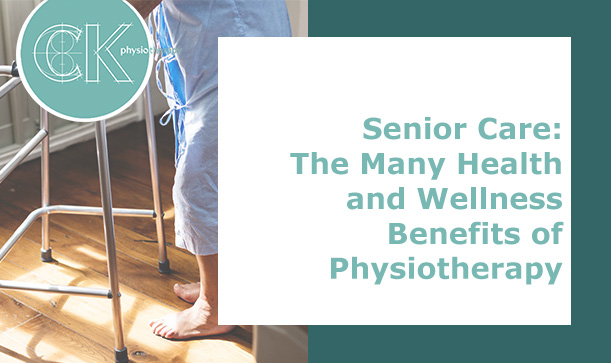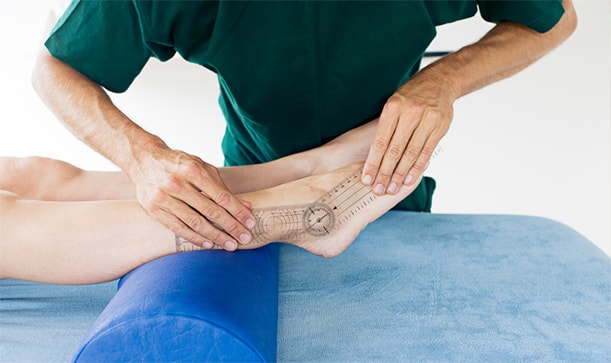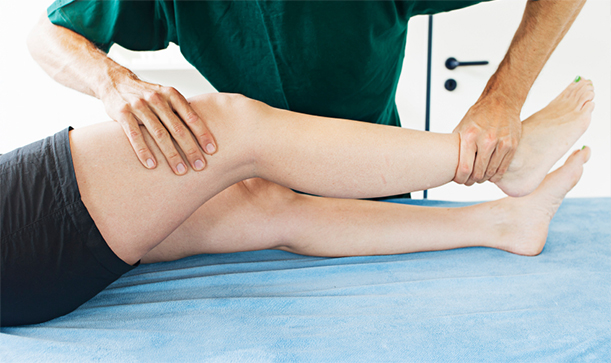CK Physiotherapy
AREAS COVERED
W7, W5, W13, Ealing, West London
57 Elthorne Avenue
Hanwell, W7 2JY
T: 020 8566 4113
M: 079 572 46185
E: info@ckphysio.co.uk
Location / Parking
We are situated in Hanwell, between Boston Manor Road and Northfields Avenue, south of the Uxbridge Road.57 Elthorne Avenue
Hanwell, W7 2JY
There are parking restrictions Mon - Fri 9-10am and 2-3pm. If you need a permit during this time please inform your therapist when you arrive. There are no parking restrictions at other times.
Opening Times
Please phone the number above during working hours to make an appointment. Our reception service will be happy to book your session.
London Underground / Bus Services
London Underground
10 min. walk from Boston Manor Tube Station.
15 min. walk from Northfields Tube Station.
Bus Service
E8, E3, E2, 207, 607, 83
Request Call Back
Our Blog
Physiotherapy For The Elderly: The Many Health and Wellness Benefits
By: BryanKelly (Psst, View author in Google Plus) Date: Dec 3rd, 2018The many health and wellness benefits of physical activity are proven. As we age, we want to be as healthy, active and independent as possible. Those who remain physically active as they age are typically rewarded with increased vitality and improved cognitive function.
Although many people accept the loss of flexibility and mobility as a natural result of the ageing process, that muscle weakness, stiffness, and pain are simply part of the experience; it doesn't have to be that way. Physiotherapy for the elderly can help seniors regain their strength, improve their flexibility, and stall or prevent cognitive decline.

Physiotherapy Promotes Function and Mobility
A physiotherapist is a movement specialist. After a physical injury or prolonged illness, physicians often recommend physiotherapy to assist in the recovery process. A prolonged convalescence can cause muscle weakness and deconditioning. Just a few of the many beneficial services provided by an experienced physiotherapist include:
Recovering mobility after an injury, including injuries of the hips, knees, or back
Minimising pain resulting from injury or chronic health conditions
Improving function and mobility following a stroke or other brain injury
Minimising or alleviating the effects of vertigo
Recommending mobility aids and educating for their proper use
Minimising muscle tightness and muscle contractures caused by disease or injury
Preserving the physical function of those living with Parkinson's disease or multiple sclerosis
Reducing the impact of osteoporosis and reducing the risk of injury resulting from the disease
Improving the physical capacity and minimising the cognitive decline of Alzheimer's disease and dementia
Physiotherapy Can Speed Recovery Time After Illness or Injury
A physiotherapist can help seniors recover from illness or injury faster and more fully than they may heal on their own. Through rehabilitation, seniors regain lost strength, relearn skills, or are assisted in learning new ways of accomplishing tasks. The goal of rehabilitation is to help seniors lead their lives as independently and productively as possible. A physiotherapist can assist in:
Recovery After a Stroke
When a stroke damages the part of the brain that controls movement, those living with the after-effects may experience weakness or paralysis (hemiplegia). After a stroke, recovery is dependent on the brain's ability to reorganise undamaged cells to compensate for damaged areas. This ability to restructure is called neuroplasticity. A physiotherapist can help those living with the effects of a stroke by helping the brain relearn movement patterns. Early intervention by a skilled physiotherapist can help prevent further complications while restoring mobility.
Reducing the Risk of Falls
Balance is the result of postural control. There is a wide range of functions involved in maintaining an upright position. Even slight imbalances in movement and posture can have devastating consequences. An older person may fall into situations that a younger person would not. Muscle strength, balance, and coordinated muscle movements are necessary to counter fall risks. By improving muscle strength, coordination and posture, physiotherapy can help reduce the risk of falls, which reduces the risk of injury and serious health complications including hip fractures.
Providing Benefits to Those Living with Alzheimer's or Dementia
There have been numerous studies that support the many potential benefits of physical activity and exercise for those living with the effects of Alzheimer's disease and other forms of dementia. Flexibility, balance and strength exercises play a significant role in symptom management. A physiotherapist can tailor exercises in their physiotherapy sessions to meet the needs of the individual. Exercise enhances cognitive abilities by providing physical and mental stimulation and supporting nerve cell growth. Physiotherapy also offers an additional opportunity to socialise, helps alleviate the symptoms of depression, and improves sleep.
Alleviating Bowel or Bladder Incontinence
Bowel or bladder incontinence is not considered a natural result of the ageing process. Incontinence is typically caused by pelvic floor dysfunction, the muscles of the pelvic floor become weak or tight. While some seniors develop pelvic floor disorders from illness or injury, pelvic floor disorders are sometimes the result of stress, clenching muscles rather than allowing the muscles of the pelvic floor to relax. A physiotherapist can help seniors relearn to control pelvic floor muscles through internal or external soft tissue mobilisation, muscle re-education, or a number of other effective treatment options.
Physiotherapy for The Relief of Pain and Inflammation
After an injury, physiotherapy can help strengthen damaged muscles and protect damaged joints. Most find that physiotherapy eases their discomfort and speeds the healing processes. An injury is not the only common cause of pain and inflammation for the elderly. Many seniors live with potentially debilitating pain caused by osteoarthritis, nerve damage, or other painful health conditions.
While medications can help relieve pain and inflammation, not everyone responds favourably to medication alone. When living with a chronic health condition that causes pain, it's often hard to imagine that moving and strengthening painful areas could ease the discomfort, but it does. A physiotherapist will devise a plan to strengthen the affected muscles and joints without causing additional stress and strain.
Research shows that physiotherapy also helps those living with chronic pain improve their range of motion. A physiotherapist has access to several options for providing pain relief. Consider the benefits of the following:
Myofascial release or Deep Tissue Massage
Manual pressure and massage decreases muscle tension and helps release the fibres that encase painful muscles, the fascia. Deep tissue massage and myofascial release are shown to increase flexibility, promote muscle relaxation, improve circulation and alleviate joint stiffness. Many people also find that massage reduces anxiety and improves sleep. Improving sleep quality helps the body heal and repair.
Heat Therapy
The application of heat is often recommended to relax muscles and improve circulation. Heat alleviates pain as it helps inflamed tissues heal. The type of heat your physiotherapist recommends will depend on the reason treatments. A physiotherapist may recommend moist heat, dry heat, or hydrotherapy.
Nerve Stimulation
A physiotherapist may suggest using strategically placed electrode pads to deliver electrical impulses to irritated nerve pathways. This type of nerve therapy is called transcutaneous electrical nerve stimulation (TENS). Nerve stimulation reduces the number of pain signals that reach the brain and promotes muscle relaxation. TENS treatment is not painful; you may notice a slight vibrating sensation at the point of contact. Most find TENS therapy quite relaxing.
Ultrasound Therapy
Ultrasound therapy uses focused sound waves to generate heat. The deep penetrating heat of ultrasound therapy reduces inflammation, improves circulation, alleviates muscle spasms, and reduces stiffness. This non-invasive treatment method has been used successfully for years to minimise pain and promote healing.
Acupuncture
The ancient practice of acupuncture is shown to provide relief from arthritis, migraine pain, and injury. While this practice does involve the use of fine needles on the skin, most find the inconsequential sensation similar to the bite of a mosquito. Acupuncture assists in the body's natural healing abilities and promotes circulation.
Physiotherapy for Fitness Training and Senior Education
While a physiotherapist can help seniors recover from illness or injury, and minimise pain, many health issues can be prevented, managed, or treated by a skilled physiotherapist. A physiotherapist can help decrease your risk of injury by helping increase your muscle tone, core strength, and balance.
Seniors with limited mobility, heart disease, or other common health concerns may need assistance in learning how to exercise safely. Physiotherapy provides education and instruction, helps seniors identify the best types of exercise for their physical condition, and helps them learn to perform exercises correctly.
A person does not need to be recovering from the effects of illness or injury to benefit from physiotherapy. A physiotherapist can also help seniors achieve their fitness goals. Seniors enlisting the services of a skilled physiotherapist benefit by working with a specialist who will devise a fitness program geared to their abilities. For general fitness, a physiotherapist will:
Train seniors to perform exercises properly to improve muscle strength
Select stretching exercises to help tendons and joints remain strong a flexible
Train seniors in the proper execution of core strengthening exercise to improve posture
Teach exercises known to improve balance and minimise fall risks
Recommend appropriate aerobic exercises to strengthen the cardiovascular system
A well-rounded fitness program includes strength, flexibility, balance, and aerobic training. A skilled physiotherapist can instruct seniors to perform exercises safely and reduce the risk of injury caused by incorrectly performed exercises. A physiotherapist can also adapt individual exercises to the needs or physical limitations of the individual.
Physiotherapy can help seniors recover from illness or injury, reduce their risk of falls, and provide patient education. Like anything worthwhile, physical therapy is often a journey, an ongoing process. For a customised rehabilitation or fitness program in London, Ealing, and Hanwell, contact CK Physiotherapy. We treat the injuries and diseases affecting our senior population by stimulating the body's natural ability to heal.
See Also





